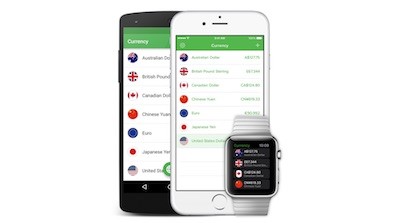
No matter how good you are at keeping a digital travel budget when it comes to cash, most of us tend to get stuck with small amounts of currency when a trip ends. Below a certain amount traditional exchange isn’t possible or worth the fees but travel often enough and all of that leftover money adds up. In fact Visa Europe estimates there’s 1.42 billion US dollars worth of unused foreign currency in the United Kingdom alone.
Fortunately, there’s a lot you can do with those Tunisian millim to turn it back into your local currency or put it to other good use.
It’s Easier The Further You Are From Home
Exchanging very small amounts of a foreign currency becomes much more difficult when you leave that country. So, before you leave the hotel or hostel you’re staying in, try to have them convert what money you have leftover into one of the major world currencies (i.e. USD, Euro, British Pound) they’re likely to have on hand. Although you might only have 2 Euro after such an exchange, if you travel frequently that can add up to an amount that makes sense converting at a later time.

Donate At The Airport
Many airports have donation boxes supporting a number of worthy causes, accepting all kinds (and amounts) of currency. Since these organizations are collecting lots of money they typically won’t have issues exchanging it – so don’t think any amount is too little.
- Direct Deposit To Paypal – There aren’t many locations around the world but hopefully TravelersBox takes off. They’ve got kiosks in 5 airports (including Istanbul’s Ataturk) that let you deposit any amount of various currency as cash, which is then deposited in your Paypal account.

In the case you’re not flying, before you leave the country ask your local host or hostel if they know of any good local charities. Some might be a close walk by where you can give back the change you have. Although these are small amounts we’re talking about, donating is much more useful than keeping coins in the bottom of your suitcase.
Use Your Change For Good
Since it was established in 1987, UNICEF’s Change For Good program, where you can donate change directly on partner airlines, has raised over $130 million dollars.
- Airlines Working With Change For Good – If you’re flying any of these airlines (Aer Lingus, Alitalia, All Nippon Airways, American Airlines, Asiana Airlines, Cathay Pacific, Finnair, JAL and QANTAS) there should be donation envelopes. In case there isn’t an announcement by the time you land, ask a flight attendant.

A number of other airlines have similar programs, including the first such one, Virgin Atlantic’s Change For Children (raised $3.46 million so far) and British Airways’ Flying Start which has collected $11 million from travelers since 2010.
The Change You Have At Home
For all the change stuck in your closet or you forgot to convert or donate before you got back home there are still some options. The first is to mail it to one of the major change collection programs listed above.
The address for UNICEF’s Change For Good program is:
U.S. Fund for UNICEF
ATTN: Change for Good Program
125 Maiden Lane
New York, NY 10038
In case you’re not nearby for that address, contact one of your favorite local charities who may be able to accept the leftover notes and change you’ve got.

- Convert The Cash Into Digital – LeftoverCurrency is a service based in the UK that accepts quite a few currencies without fees to deposit into your Paypal account.
Whenever mailing cash however keep in mind you should be using some kind of registered mail service to ensure your money arrives in the envelope you send.
- Bank It – You might have a closer local solution though if you’ve chosen one of the best banks for travelers, with a large enough local branch. Many times they’ll take various foreign currencies (especially the big three mentioned above) and deposit them directly into your checking or savings account.
Finally, if you’re absolutely lost with what to do, get in touch with your local elementary school. Your impressive international coin collection might make for an interesting school project or there might be kids (or parents!) who collect worldwide currencies.












It’s annoying having left over currency. Definitely a good idea to donate.
Absolutely, better than it to go to waste.
Some great ideas here. However, if you want to swap the currency for a different currency, you can do so easily with the MyMoneyChanger app. It just finds you someone like you who has left over currency and want to swap it back. Easy.
Do you have to meet the other person in person?
I always find myself with leftover currency…
Luckily, this is about to become a thing of history. My friend is developing an app that will connect people who want to swap currencies.
Hey, I love the idea you had with the airport passport I also like many of your articles. Thanks for sharing and great job!
*passwords of course 😉
Odd post to tell me, but thanks 🙂